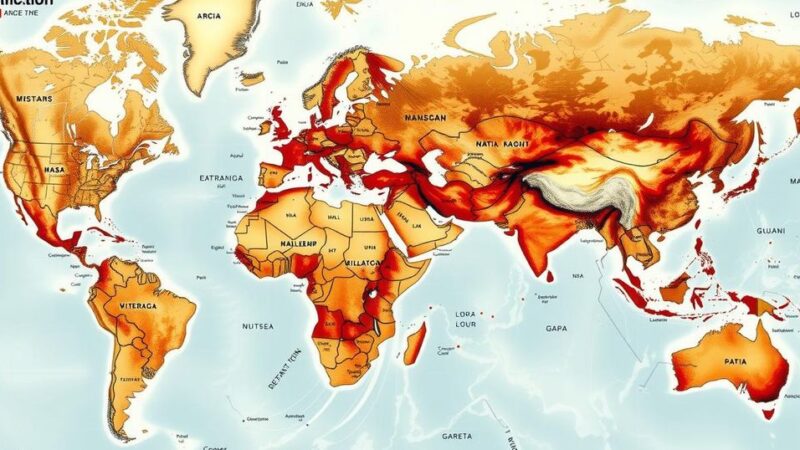The Nigeria Centre for Disease Control (NCDC) reports over 1,319 deaths due to a diphtheria outbreak. With over 42,000 suspected cases reported since 2022, low vaccination rates and laboratory capacity issues are noted. Kano State accounts for the majority of confirmed cases. The government has launched vaccination campaigns, yet public health experts highlight the need for increased testing and community engagement to address the crisis.
The Nigeria Centre for Disease Control and Prevention (NCDC) has confirmed that the country is experiencing a dire diphtheria outbreak, resulting in over 1,319 fatalities. This alarming statistic was published in the NCDC’s recent situation report from the National Diphtheria Emergency Operations Centre, dated Sunday.
Diphtheria is a significant bacterial infection caused by Corynebacterium diphtheriae, affecting the throat and nose membranes, leading to serious complications including respiratory difficulties and heart failure. Vaccination is crucial for prevention, with timely treatment utilizing antitoxins and antibiotics essential for disease management, according to Science Nigeria.
The ongoing outbreak has seen over 42,000 suspected cases reported across 37 states since 2022. The report mentions that challenges such as insufficient vaccination coverage, poor laboratory capacity, and slow case confirmation persist in addressing the disease, as highlighted by the NCDC.
Significantly, Kano State has been identified as the epicenter, accounting for 75 percent of confirmed cases with 18,108 out of 25,812 reported. Other affected regions include Bauchi, Yobe, and Katsina. The agency reports a case fatality rate of 5.1 percent, indicating severe mortality in certain states, where rates exceed 80 percent in areas like Lagos and Adamawa.
In the most recent reporting week, the NCDC added 23 new suspected cases, predominantly from Lagos and Katsina, although none have yet been confirmed. Approximately 56.5 percent of cases still remain unclassified due to laboratory delays.
In response to the outbreak, the Nigerian government has initiated reactive vaccination campaigns in regions severely affected by diphtheria and has increased community engagement efforts involving local leaders to encourage immunization.
Despite Nigeria’s Expanded Programme on Immunisation, only 4,981 confirmed cases (19.3 percent) were fully vaccinated against diphtheria, revealing a significant gap in routine immunization coverage, particularly in northern Nigeria. Medical virologist Dr. Solomon Chollom stresses the necessity for urgent mass vaccination efforts, particularly for children aged 1 to 14, who form 62.9 percent of confirmed cases.
Concerns extend to Nigeria’s testing capabilities, with Dr. Chollom noting that in 2024, cases were confirmed solely through clinical symptoms rather than laboratory testing. This indicates a concerning lack of testing resources, including reagents and PCR capacity, which could lead to underreporting of the disease’s actual burden.
The government has pledged to enhance laboratory infrastructure and improve PCR testing protocols, although progress remains slow, raising apprehensions among health professionals. Experts emphasize the need for continued improvements such as promoting nationwide vaccination drives, enhancing disease surveillance, and assuring a consistent supply of diagnostic materials.
As Nigeria navigates through one of its most severe diphtheria outbreaks in years, health officials assert that a focus on increased vaccination and improved monitoring is essential to preventing further deterioration of the situation. Plans include increasing case management support, enhancing PCR testing capabilities, expanding vaccination, and raising public awareness through social media, as public health authorities continue to highlight preventive vaccination as the most effective method against diphtheria.
In conclusion, Nigeria faces a critical diphtheria outbreak with over 1,319 deaths and more than 42,000 suspected cases reported since 2022. Challenges such as low vaccination rates and inadequate laboratory capacity contribute to the crisis. With Kano State being the hardest hit, the government has initiated vaccination campaigns while public health experts emphasize the urgent need for improved testing and community engagement to mitigate the situation. Effective vaccination remains paramount in combating this public health threat.
Original Source: sciencenigeria.com






